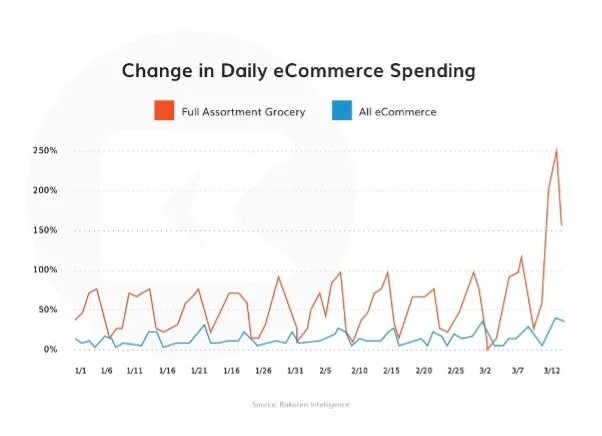Ecommerce solutions to build your brand
Ecommerce businesses are enjoying exponential growth. In addition to an ecommerce website, there’s never been a better time to invest in online marketing to further grow your online sales.
Some app developers are suggesting that brand-focussed ecommerce businesses should develop an app as part of their growth strategy. With an app, customers can personalise their experience shopping for what your brand offers. No doubt apps are powerful and can enable extraordinary growth and customer reach. But with an ecommerce website, and business accounts with both Instagram and Facebook, eligible businesses can sell products via Instagram and Facebook apps — without having to outlay significant time and money in developing their own app.
Should you get an app or a website for your ecommerce business — or both?
Even before the Covid 19 ecommerce boom, the use of mobile phones for shopping online has been steadily increasing. With this trend has come a lot of noise in the industry about the need for ecommerce businesses to develop their own branded app to sell products online.
Ecommerce solutions for brand-focussed SMEs
There are two brand-focussed ecommerce solutions available and depending on your product and business model either one or both could work for your business:
1. Ecommerce website
2. Mobile app for ecommerce.
Research has shown that 70% of people are using mobile devices for online purchases. With the importance of mobile-first technology for ecommerce, it’s no surprise that app development has also surged in take-up.
However, are apps the solution for all ecommerce businesses like some app developers suggest?
Unless your brand has already gained traction with a loyal customer base, for example the giants like Amazon or eBay, an app to sell products is an unnecessary expense. It takes a huge amount of time to develop an app that works well. The average ecommerce SME will find the cost of setting up an app (that works well) is prohibitive.
Plus, your brand’s app won’t be found in a search engine, unlike your optimised ecommerce website. More about this below.
How do ecommerce apps and ecommerce websites differ?
Mobile apps
Mobile apps run on Android and iOS mobile phones. To use an ecommerce app, customers download the application onto their device. From the app, customers can browse through products and make a purchase.
Mobile apps take more time to develop than a website, and therefore are more costly. Without knowing about or wanting goods and services offered by a particular brand, an app could sit the app store without anyone choosing to use it!
Mobile apps are not discoverable through search engines.
Ecommerce websites
Ecommerce websites have a domain name and are accessed by anyone having internet connection and a desktop or mobile device.
Ecommerce websites can be relatively quick and cost effective to set up using content management systems (CMSs) like Shopify, WordPress (using the WooCommerce plugin), Squarespace and others. CMSs provide cost-effective solutions with plugins and options for search engine optimization. There is nothing like the value of organic search to get your products known to customers.
An ecommerce website that achieves high rankings through an organic search will help get your products get discovered — by future and current customers — and there’s value in that! An ecommerce website is searchable and used effectively on a mobile device as long as the website design is responsive — designed to be easily used on all devices.
The value of organic search
Research (Jani: Asia’s Logistics Simplified) has uncovered the top ways that Australians discover brands:
Search engines – 42%
Ads on Television – 42%
Word-of-mouth recommendations – 38%
Ads in Social Media – 26%
In-store displays or Promotions – 25%
Product Brochures or Catalogues – 24%
Brand or Product Websites – 24%
Ads on Websites – 22%
TV Shows or Films – 22%
Direct Mail or Email – 18%
Apps that can power your business — Instagram and Facebook
With an ecommerce site, and your business Instagram and Facebook accounts, there’s huge potential to scale your business by tapping into the 1.7 billion Instagram and Facebook app users around the world. Although you’ll be benefiting from Instagram’s and Facebook’s extraordinary customer reach with huge potential for growth, transactions occur using your already set up online shop in your ecommerce website.
Will Instagram become your ‘new homepage’
Some people say yes, that your Instagram profile will become your ‘new homepage’. However, right now, with 42% of people discovering brands and products via organic search (as noted above), and because an ecommerce website is a necessary requirement for selling directly via Instagram and Facebook, the importance of a good ecommerce website is not diminished when you focus on selling from these apps.
Summary
The most efficient way to build your brand and business — and your loyal customer base — is to have an ecommerce website that is optimised for user experience, organic searches, and designed responsively. Without an optimized ecommerce website, you’ll be missing out on sales generated from your brand and products through organic searches.
Apps are an effective option for ecommerce brands with a significant loyal customer base — but the average SME doesn’t need their own. The quickest way to develop a significant customer base is with an optimized ecommerce website that also offers a great user experience — and by tapping into the extraordinary reach of the Instagram and Facebook apps.



